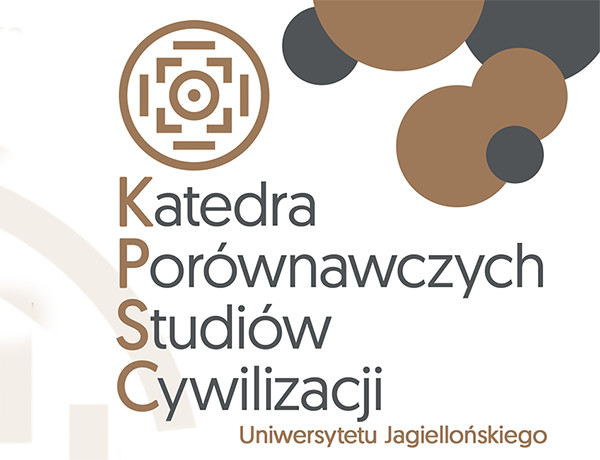
Zapraszamy do udziału w gościnnym wykładzie profesora Christiana A. Rosalesa (College of Human Ecology, University of the Philippines Los Baños), który odbędzie się 17 kwietnia 2024 roku o godzinie 13.00 online na platformie MS Teams.
Wykład został zorganizowany przez dra Tobiasza Targosza
Zachęcamy do udziału w gościnnym wykładzie profesora Christiana A. Rosalesa (College of Human Ecology, University of the Philippines Los Baños), który odbędzie się 17 kwietnia 2024 roku o godzinie 13.00 online na platformie MS Teams.
Link do wykładu: [link]
Wydarzenie na portalu Facebook dostępne jest tutaj.
Wykład ma charakter otwarty, zachęcamy do udziału wszystkich zainteresowanych.
Abstrakt:
Indigenous peoples’ demand for rights of autonomy and exercise of traditional practices, among many concerns, led to The Indigenous Peoples’ Rights Act (IPRA/RA 8371) of 1997, a landmark legislation for the protection of Indigenous Peoples’ rights in the Philippines. But, more than two decades after this legislation many of its provisions proved distant from grassroots realities and have even exacerbated marginalization. Through fieldwork, this lecture shows the disconnect between representation and consent as formulated in the IPRA and how such terms operate locally as a “representational authority” and “community-negotiated consent”. As cases in point, the Iraya and Tau-Buhid Mangyan demonstrate that politicized forms of these terms arise as a response to the political demands of the State. Throughout, this lecture argues for the acknowledgment of differing notions of these concepts among Indigenous peoples as more than mere cultural conflict but as a political ecological issue. It concludes with a recommendation that the process of obtaining consent– as a basic right to assent or dissent to the state (and state-like) demands must be examined ethnographically to contextualize the ways consent involving Indigenous communities in the Philippines (and abroad as may be applicable) is established in works involving them.
Notka biograficzna:
![[Grafika: fotografia przedstawiająca profesora Ch. Rosalesa; mężczyzna w okularach w eleganckim stroju, portret.]](https://psc.uj.edu.pl/documents/30300043/31842734/Christian+Rosales.jpg/d1b53ef5-22bf-4309-b144-37b2ce9db3f4?t=1712757881706) Dr. Christian A. Rosales is a cultural anthropologist and an Assistant Professor 7 at the
Dr. Christian A. Rosales is a cultural anthropologist and an Assistant Professor 7 at the
College of Human Ecology, University of the Philippines Los Baños (UPLB). As an academic, he has been invited as a peer reviewer and editor for local and international journals, a consultant for Non-government Organizations, a contributor and collaborator in various projects, and an evaluator for community-related projects and advocacy programs. In the recent gathering of anthropologists in 2023, he has been elected as a Board Member of the Anthropological Association of the Philippines. Through some of his publications and active engagement with global academics, he received several International Publication Awards from UPLB. Dr. Rosales is recognized as The first UPLB faculty member to receive the prestigious Philippine Social Science Council Virginia A. Miralao Excellence in Research Award (https://uplb.edu.ph/all-news/uplb-prof-bags-2023-vam-award/) for his works on Philippine Indigenous communities, especially for his article on “Pigs and ritual-hunting among the Highland Tau-Buhid in Mounts Iglit-Baco Natural Park” published in Anthropozoologica, Publications Scientifiques du Muséum national d’Histoire naturelle, Paris, France. Dr. Rosales’s works mediate the ontology, cosmopolitics, and political ecology of Indigenous peoples' lifeworld.
Abstrakt:
Indigenous peoples’ demand for rights of autonomy and exercise of traditional practices, among many concerns, led to The Indigenous Peoples’ Rights Act (IPRA/RA 8371) of 1997, a landmark legislation for the protection of Indigenous Peoples’ rights in the Philippines. But, more than two decades after this legislation many of its provisions proved distant from grassroots realities and have even exacerbated marginalization. Through fieldwork, this lecture shows the disconnect between representation and consent as formulated in the IPRA and how such terms operate locally as a “representational authority” and “community-negotiated consent”. As cases in point, the Iraya and Tau-Buhid Mangyan demonstrate that politicized forms of these terms arise as a response to the political demands of the State. Throughout, this lecture argues for the acknowledgment of differing notions of these concepts among Indigenous peoples as more than mere cultural conflict but as a political ecological issue. It concludes with a recommendation that the process of obtaining consent– as a basic right to assent or dissent to the state (and state-like) demands must be examined ethnographically to contextualize the ways consent involving Indigenous communities in the Philippines (and abroad as may be applicable) is established in works involving them.

